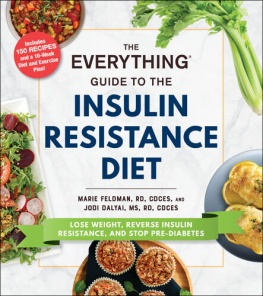CONTENTS


Copyright 2017 by Del Sroufe
All rights reserved. No part of this book may be used or reproduced in any manner whatsoever without written permission except in the case of brief quotations embodied in critical articles or reviews.

BenBella Books, Inc.
10440 N. Central Expressway, Suite 800
Dallas, TX 75231
www.benbellabooks.com
Send feedback to
First E-Book Edition: May 2017
Library of Congress Cataloging-in-Publication Data
Names: Sroufe, Del, author.
Title: The China study family cookbook : 100 recipes to bring your family to the plant-based table / Del Sroufe ; edited by LeAnne Campbell.
Description: Dallas, TX : BenBella Books, 2017. | Includes bibliographical references and index.
Identifiers: LCCN 2016047876 (print) | LCCN 2016048413 (ebook) | ISBN 9781944648114 (paperback) | ISBN 9781944648121 (electronic)
Subjects: LCSH: Vegetarian cooking. | Cooking (Vegetables) | LCGFT: Cookbooks.
Classification: LCC TX837 .S7163 2017 (print) | LCC TX837 (ebook) | DDC 641.6/5dc23
LC record available at https://lccn.loc.gov/2016047876
Editing by LeAnne Campbell, Karen Wise, and Leah Wilson
Copyediting by Karen Levy
Proofreading by Laura Cherkas and Amy Zarkos
Indexing by Debra Bowman Indexing Services
Text design by Faceout Studio, Paul Nielson
Text composition by Aaron Edmiston
Front cover photo by Nicole Axeworthy
Front cover design by Faceout Studio, Emily Weigel
Full cover design by Sarah Avinger
Interior photography by Lindsay Dorka
Printed by Versa Press
Distributed by Perseus Distribution
www.perseusdistribution.com
To place orders through Perseus Distribution:
Tel: (800) 343-4499
Fax: (800) 351-5073
E-mail:
Special discounts for bulk sales (minimum of 25 copies) are available. Please contact Aida Herrera at .


As a parent, I know well that we want our kids to have the best of everything. I believe that we, as humans, are hardwired to want to increase the chances that our children will be successful. But how do we do that? Parenting is a tricky, difficult business.
Often we teach our kids by simply passing on the lessons and activities weve learned from our own life. We share the pastimes we enjoy and our values and attitudes regarding everything from politics to work to religion. Even though we may not be making a conscious effort to teach our kids during most times of the day, they are constantly watching and learning by observation.
When it comes to our health and the foods we eat, this dynamic can unfortunately lead to a dangerous situation. About 70 percent of Americans are overweight or obese, and diabetes is becoming more and more common. Heart disease, a disease strongly affected by diet, remains our number one killer. Among U.S. adults aged 55 to 64, about 75 percent take a prescription medication and roughly 20 percent are on five or more prescription medications every month. We are generally less healthy than wed like to be, and were medicated to the point where it has become normal to be taking daily medication.
Our diet is largely to blame, though physical inactivity is obviously an important contributor. Americans consume about 60 percent of their calories from ultra-processed foods. Ultra-processed foods are a mishmash of multiple processed ingredients, including salt, refined sugars and fats, and various additives to boost color, flavor, or other qualities. These are foods like packaged cookies, snack items, and candies, to name a few examples. The human body does not perform optimally or sustain maximum health with this type of fuel, yet the majority of all our calories are ultra-processed!
I was at a wedding recently with my toddler, and the waitstaff, by default, assumed that our son would need a kids menu. Of course the kids menu consisted of choices like chicken fingers, pizza, and mac and cheese. To begin with, its unfortunate that people assume kids need food thats different from what adults eat. Our expectations for our kids have become too low if we just assume they will never try new foods or foods that arent hyperpalatable. In our push to get kids to eat all their food all the time, we have loaded their plates with extra fats and sugars and refined flours even beyond what the standard U.S. adult already consumes.
Our kids are learning our standard eating patterns all too well, and many are already paying the price. In the past thirty years, obesity has more than doubled among children and quadrupled among adolescents. Over 20 percent of adolescents are now obese. Diabetes is on the rise. Most studies show that our kids are eating way too many added sugars, processed foods, and animal foods, and not enough fruits, vegetables, or whole grains, as well as being far too sedentary. As a society, we are sending our kids down a path to poor health, illness, medication, and medical intervention, which will inevitably lead to personal tragedynot to mention financial difficultyfor a great many people in the future.
I strongly believe that parents want the best for their kids, and that gives me hope. Unfortunately, though, many parents are uncertain of the best path. We are understandably worried about feeding kids new and different foods. Can they grow if they dont have meat? Are added oils and added sugars really that bad? And isnt dairy required for strong bones and teeth? You may have heard headlines about vegan kids who died or suffered permanent damage from a poorly planned diet. In the face of uncertainty surrounding something as precious as our childrens health, we revert to the societal defaults because we dont want to take unnecessary risks. Many people have dabbled in plant-based diets for themselves, but once they have kids to feed, they put meat and dairy right back on the menu.
So lets work on changing the default nutritional choices, one person at a time. We can do better, and it starts in our home. It can start with this book. With some education, we all can view a meal of fruits, vegetables, whole grains, and legumes as healthy and normal, rather than radical.
Well-planned plant-based diets are marvelously healthy for kids and adults alike. In fact, a recent trial showed that parents and kids who adopt a strict plant-based diet together can lower their weight and reduce various risk factors for heart disease. Another study showed that cutting down dramatically on added sugar consumption has exceptional benefits in just two weeks. And while it is important to make sure that kids eat a varied plant-based diet with plenty of calories and get enough supplemental vitamin B and perhaps vitamin D in certain circumstances (see The China Study Solution), adding more fruits, vegetables, and whole grains to your familys meals will always be a good idea. Give your family more fiber and more antioxidants, and youll give them more health.
















